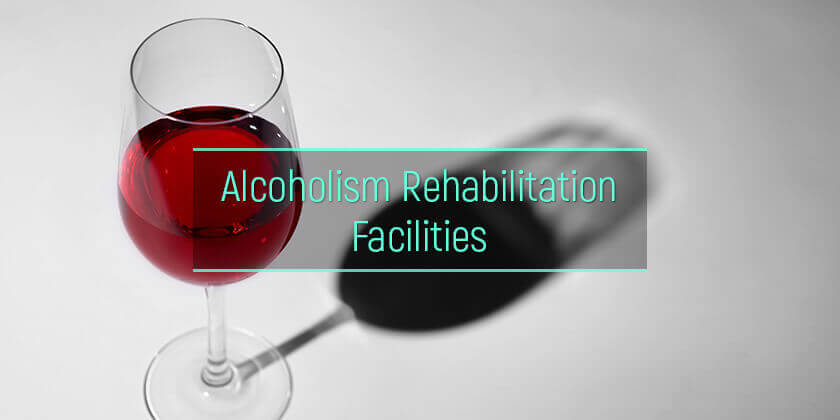
For those suffering from addiction, getting clean is hard to do alone. In fact, many would say it is impossible. Alcoholics find the struggle particularly difficult as alcohol is a legal substance and hard to escape. That is why alcohol treatment centers are so prevalent.
Alcohol rehab is designed to help those struggling with addiction retrain their mental patterns while also building skills that allow them to both stay clean and be an active member of society. These facilities cater to different clientele (such as alcohol treatment centers for men). Of course, before someone signs up for treatment, both they and their loved ones should understand what rehab for alcoholics is and can do.
Top Local Rehabilitation Facilities By State
- Alabama
- Alaska
- Arizona
- Arkansas
- California
- Colorado
- Connecticut
- Delaware
- Florida
- Georgia
- Hawaii
- Idaho
- Illinois
- Indiana
- Iowa
- Kansas
- Kentucky
- Louisiana
- Maine
- Maryland
- Massachusetts
- Michigan
- Minnesota
- Mississippi
- Missouri
- Montana
- Nebraska
- Nevada
- New Hampshire
- New Jersey
- New Mexico
- New York
- North Carolina
- North Dakota
- Ohio
- Oklahoma
- Oregon
- Pennsylvania
- Rhode Island
- South Carolina
- South Dakota
- Tennessee
- Texas
- Utah
- Vermont
- Virginia
- Washington
- West Virginia
- Wisconsin
- Wyoming
What Is Alcohol Rehab?
Alcohol addiction rehab is a program designed to help someone with problematic alcohol use permanently abstain from consumption. Depending on the center, the process can start with detox alcohol treatment or rehabilitation therapy. Some centers continue with sobriety maintenance while others will refer patients to recovery groups for this.
There are four basic elements that are seen in some form in nearly all alcohol treatment facilities. These are:
- Assessment: The facility determines the patient’s mental and physical alcohol dependence level, checks their overall health, and screens for things like co-occurring disorders and other substance abuse.
- Detox: Anyone who is physically addicted to alcohol will require alcohol detox. Some facilities handle this on site while others outsource this to a local hospital, as alcohol detox can be deadly without the right interventions.
- Treatment: The exact methods used vary, but most facilities will offer a combination of psychological treatment and medicinal treatment. The goal is to get at what drives the addiction and establish the groundwork for sobriety.
- Education: There are many misconceptions about alcoholism and alcohol use disorder, and these can get in the way of recovery. When patients are empowered with the truth, they can avoid shame and get clean with confidence.
It is important to note that alcohol dependence treatment does not stop when the patient leaves the facility or ends active treatment. Periodic counseling is still needed, and it is important to find a group that helps with maintaining sobriety, such as alcoholics anonymous. In some cases, sober living homes will be required. While rehabilitation is temporary, recovery is for life.
Main Goals of Alcohol Rehab
Alcohol rehab centers often have their own mission statement, but their goals are pretty universal. The more established and informed the rehabs are, the clearer and more comprehensive their goals tend to be. All should relate back to helping patients achieve sobriety and live a healthier life. Alcohol treatment center goals can include:
- Creating a customized treatment plan that offers the best possible foundation for recovery
- Addressing the root causes of addiction through holistic treatment
- Improving overall health
- Educating the patient so they are knowledgeable about their addiction
- Educating families to provide the patient with a support network
- Developing coping strategies when faced with cravings or triggering situations
- Setting specific, measurable, attainable, and relevant (SMART) goals for the patient
- Integrating into society in a safe and productive manner
One must keep in mind that addiction is personal, and as a result, so is alcoholic rehab. The exact goals will vary based on patient requirements.
Types of Alcohol Rehabs
Many people think that rehab for alcoholics is one of two things: a hospital-like rehab center or Alcoholics Anonymous. However, there are many variables at play, allowing alcoholic rehab facilities to be highly individualized. Here are just some of the ways drug and alcohol treatment centers can be classified in the U.S.
- By setting: Many facilities offer both—inpatient alcohol rehab at the start, switching to outpatient treatment once further into recovery. However, some centers are outpatient or inpatient only.
- By counseling types: Alcohol rehab facilities can offer individual, group, and family counseling sessions. Some focus on only one type of counseling while some will incorporate all.
- By use of pharmaceuticals: There are medications that can curb the craving for alcohol, but not all rehabilitation facilities believe using them is best practice.
- By cost: There are rehab facilities at all price ranges, including free alcohol rehabilitation centers and those that accept insurance.
- By forms of psychotherapy: There are many forms of behavioral therapy used in recovery, including cognitive-behavioral therapy and eye movement desensitization and reprocessing therapy.
- By approach: There are two broad categories for the approach: traditional alcohol rehab and holistic alcohol rehab. The first tends to be based on the 12 steps while the second is about treating the whole person in a personalized way.
- By religion: Christian alcohol rehab is by far the most common religion-based rehab in the United States. However, there are other religions represented. For example, there are centers offering Jewish alcohol rehab.
- By patient age: Patients of different ages have different needs. As such, a teen alcohol rehab program should not overlap with an adult one.
- By location: Urban centers tend to offer the best access to hospitals and additional care, while rural facilities give patients the chance to use nature as part of their recovery.
- By gender: Many facilities offer treatment for both men and women. However, there are those that specialize strictly in women alcohol treatment or recovery for men. Those that mix genders tend to house them separately.
- By sexual orientation: Many LGBTQ individuals struggle with addiction, often as a coping mechanism for battling prejudices within society. LGBTQ alcoholism rehab is tailored to the unique needs of this population.
It is important to note that there can be overlap in types of facilities. For example, an alcohol outpatient program might offer Christian-based therapy strictly for teens. Because there are so many variables and significant overlap, there is a facility out there that is a perfect fit every person seeking recovery—it just requires a diligent search to find it.
Choosing the Right Rehabilitation Program
Selecting the right rehabilitation center for alcoholics is mostly a matter of matching up the offerings at a facility to the wants and needs of the patient. However, there are certain things that are markers of quality treatment which all persons entering into recovery should look for. These include:
- Appropriate accreditation for the facility
- Current licensing and certifications for the facility
- Credentials and licenses for the staff
- A complete staff (doctors, nurses, psychologists, nutritionists)
- Reliance on evidence-based practices
- A better-than-average success rate
- Insurance coverage
Beyond this, the patient must consider what their individual needs are. For example, someone with chronic alcoholism requires treatment from facilities that are prepared for dangerous detox and to deal with the health problems that result from heavy, long-term drinking. A teen patient with a dysfunctional home life will need a facility that offers family alcohol treatment. While the search may take time, the right facility is out there.
U.S. Alcoholism and Rehab Statistics
While it is important to know what alcoholics rehab is and the treatments offered, sometimes what patients need are numbers. Many are reluctant to enter into therapy because they believe it is never successful, or they think admitting they have a problem will make them an outsider. However, statistics can help them see that rehabilitation has a high success rate and that they are not alone.
Approximately 88,000 alcohol-related deaths occur in the United States every year. The majority of these deaths are men, accounting for nearly three-fourths of these fatalities. Many of these are from drunk driving accidents.
Because most people know at least one person who has relapsed after rehab, it is easy to think that rehab is not effective. However, it is actually as effective as treatments for other chronic conditions, such as heart disease and diabetes. As with any form of healthcare, patient cooperation makes a major difference. Around half of all people who enter rehab complete it successfully.
The first step in getting help is acknowledging there is a problem. For some, that might be brought on by experiencing the side effects of drinking alcohol, or realizing how their addiction is hurting others. For others, it might be because the law demands it. Whether voluntary or court-ordered alcohol rehabilitation, the right help is out there.



